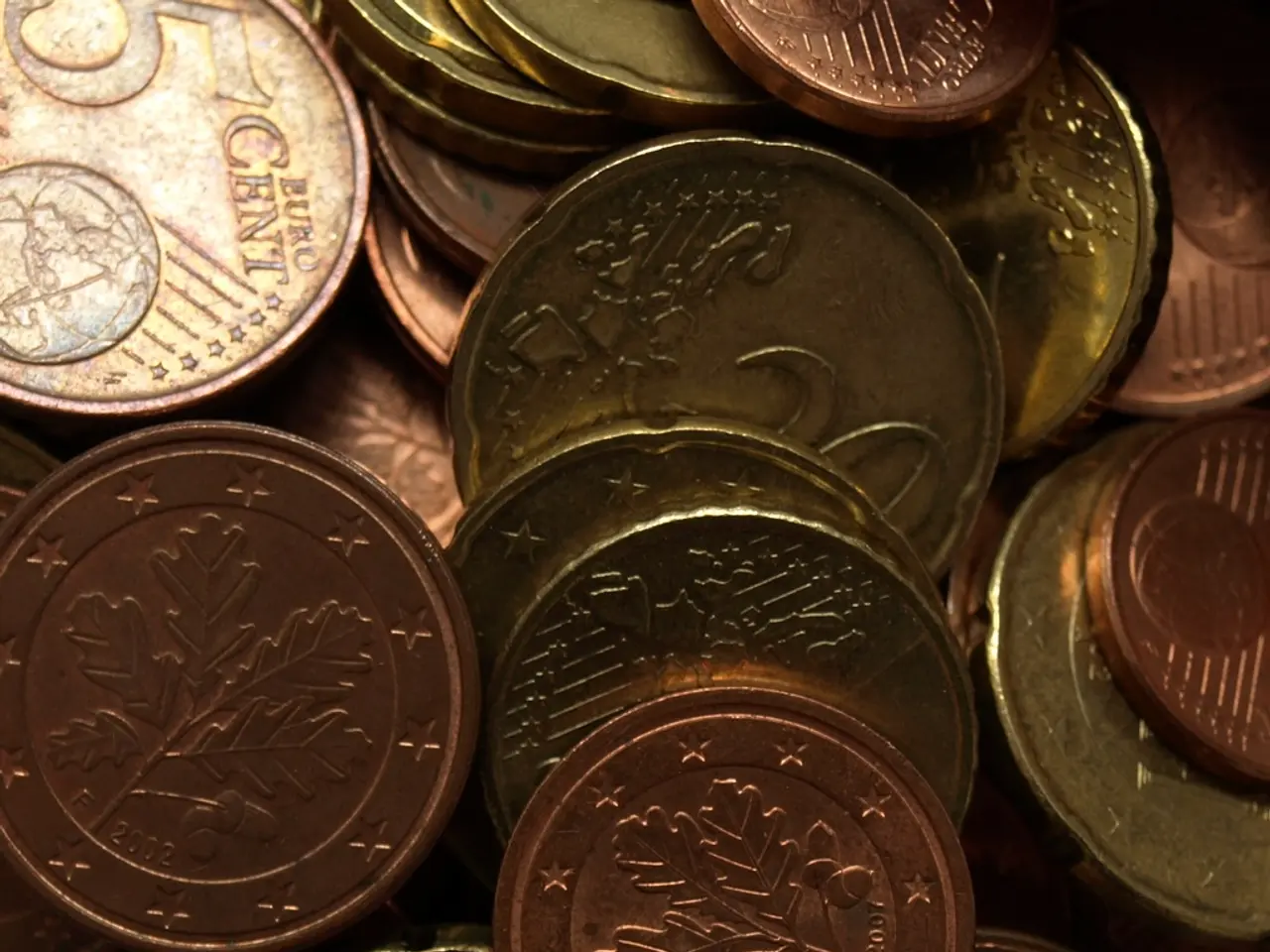Crypto Taxation Regulations in Democratic Republic of Congo (DRC)
In the heart of Central Africa, the Democratic Republic of Congo (DRC) is making strides in the world of cryptocurrency, balancing innovation with consumer protection and fair taxation. As of 2025, the DRC has implemented a series of regulations that govern the trading, mining, and business activities of cryptocurrencies, treating them as taxable assets but not recognising them as legal tender.
One of the key regulations is a 5% withholding tax on all cryptocurrency-to-fiat conversions exceeding $5,000. This tax, introduced in 2025, applies to conversions where crypto assets are converted to local or foreign fiat currency. Traders must declare their crypto earnings and comply with reporting requirements to avoid penalties, which may include fines, back taxes, or legal action.
Capital gains tax on crypto profits is also applied under the existing general tax laws. At present, there are no specific crypto-focused capital gains tax rates, but this could change as the regulatory framework evolves.
Businesses and platforms dealing with cryptocurrencies, such as exchanges and trading companies, are required to obtain a license from a Digital-Asset Service Provider (DASP) to operate legally. The General Directorate of Taxes (DGI) governs taxation, adapting existing tax legislation to crypto transactions pending the finalization of special crypto tax regulations.
The Central Bank of Congo (BCC) permits cryptocurrency transactions but does not recognise them as legal tender. It regulates indirectly by setting the framework that allows crypto activities without prohibition, focusing on consumer protection and financial sector safeguarding.
Looking ahead, the DRC is working towards a broader Digital-Asset Law, expected to clarify and expand crypto regulation, including licensing requirements for exchanges and token issuers by the end of 2025. This law is part of ongoing efforts to integrate crypto with the financial system, such as partnerships with Binance for mobile money on-ramps and preliminary talks about a Congolese Franc-pegged stablecoin.
The cryptocurrency market in the DRC is projected to generate $1.7 million in market revenue by 2025, with an average revenue per user of $5.7. The government aims to stimulate innovation in this sector while ensuring fair taxation and supervision. Foreign investors, generally, are not taxed on crypto gains in the DRC unless they operate a registered business in the country. The corporate tax rate in the DRC is 28%, expected to rise to 30% by the end of 2025. Personal income tax rates are progressive, with a maximum rate of 40% for high earners.
P2P crypto trades are not explicitly taxed unless converted to fiat, but large or frequent trades may attract scrutiny under general income tax rules. Stricter KYC rules may be imposed for crypto exchanges due to the DASP licensing, but individual wallet holders face minimal reporting requirements for now. Airdrops and hard forks are not currently clearly regulated in the DRC, but could be treated as taxable income if converted to fiat. No Value-Added Tax (VAT) or Goods and Services Tax (GST) is imposed on crypto transactions in the DRC.
In summary, the DRC is moving towards a comprehensive regulatory framework for cryptocurrencies, balancing innovation with consumer protection. Cryptocurrencies are legally permissible but not recognised as legal tender. Traders, miners, and businesses must comply with tax regulations and obtain necessary licenses to operate legally. The DRC's approach to cryptocurrency regulation is cautious but constructive, aiming to encourage innovation while protecting consumers and the financial system.
[1] Source: [https://www.coindesk.com/business/2025/01/20/dr-congos-emerging-cryptocurrency-market-takes-shape-under-new-regulations/] [2] Source: [https://www.bloomberg.com/news/articles/2025-03-01/dr-congo-s-crypto-market-is-booming-as-regulations-take-shape]
- The Democratic Republic of Congo (DRC) has implemented a 5% withholding tax on cryptocurrency-to-fiat conversions exceeding $5,000, applying to conversions where crypto assets are converted to local or foreign fiat currency.
- Traders must declare their crypto earnings and comply with reporting requirements to avoid penalties, including fines, back taxes, or legal action.
- Businesses and platforms dealing with cryptocurrencies, such as exchanges and trading companies, are required to obtain a license from a Digital-Asset Service Provider (DASP) to operate legally.
- The Central Bank of Congo permits cryptocurrency transactions but does not recognize them as legal tender, focusing on consumer protection and financial sector safeguarding.
- The DRC is working towards a broader Digital-Asset Law, expected to clarify and expand crypto regulation, including licensing requirements for exchanges and token issuers by the end of 2025.
- P2P crypto trades are not explicitly taxed unless converted to fiat, but large or frequent trades may attract scrutiny under general income tax rules. Airdrops and hard forks are not currently clearly regulated in the DRC, but could be treated as taxable income if converted to fiat.
- In summary, the DRC is moving towards a comprehensive regulatory framework for cryptocurrencies, balancing innovation with consumer protection. Cryptocurrencies are legally permissible but not recognized as legal tender. The DRC's approach to cryptocurrency regulation is cautious but constructive, aiming to encourage innovation while protecting consumers and the financial system.







